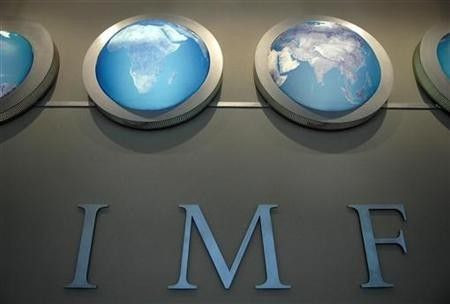IMF hack opens door to global market fraud

The IMF security breach is bearing hallmarks of a sophisticated and targeted cyber-attack, putting sensitive global financial data at risk that may be used to manipulate markets.
The International Monetary Fund collects sensitive information about the financial systems of its 187 member nations.
If leaked, some data in IMF computer systems could be used to manipulate or profit from bonds and currencies around the world.
Tom Kellermann, a former cybersecurity specialist at the World Bank who has been tracking the incident, told the Wall Street Journal that the infiltration involved significant reconnaissance before the actual attack and code written specifically to penetrate the IMF.
This isn't malware you've seen before, he said.
It was much more difficult to detect and the concern was hackers intended to gather information that could have moved markets.
He added that attackers appeared to have broad access giving them sight of IMF plans relating to bailing out the economies of countries.
IMF spokesman David Hawley said the organization is fully functional, but declined to provide further details on what he termed an IT incident. Hawley also declined to say if data was taken.
The IMF hasn't made a public announcement, but a leaked internal memo indicates staffers were told of the incident as early as last June 1.
Last week we detected some suspicious file transfers, and the subsequent investigation established that a Fund desktop computer had been compromised and used to access some Fund systems, according to a June 8 e-mail.
At this point, we have no reason to believe that any personal information was sought for fraud purposes.
The hacking comes on the heels of a string of attacks on a number of multi-national companies.
Just this week banking giant Citibank confirmed that credit card data of about 200,000 of its North American customers have been hacked. The event marked the largest attack on a bank in the US to date.
The week before US military contractor Lockheed Martin was compromised as hackers used Lockheed's own secure id technology to access its networks.
Google has accused Chinese hackers of targeting the Gmail accounts of U.S. government officials.
Moreover, the IMF is already facing a public-relations headache after the arrest of Dominique Strauss-Kahn, who resigned as IMF managing director last month after being accused of sexually assaulting a maid in a New York hotel.
French Finance Minister Christine Lagarde, Mexican central bank chief Agustin Carstens and others are vying for the top job. Stanley Fischer, Israel's central bank chief, emerged as a candidate Saturday.
© Copyright IBTimes 2024. All rights reserved.





















